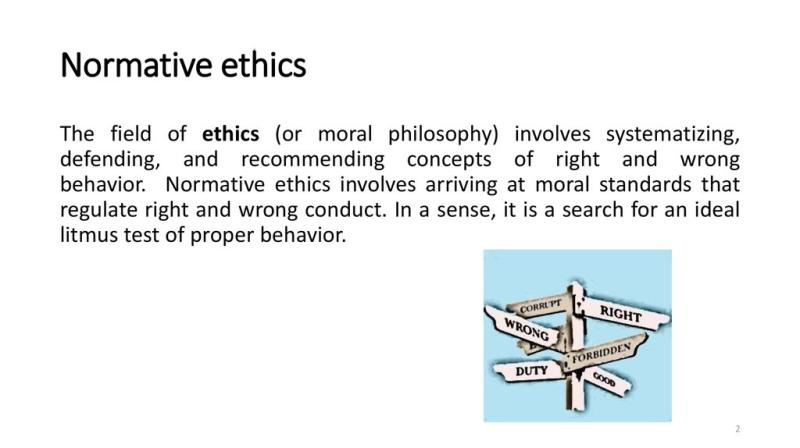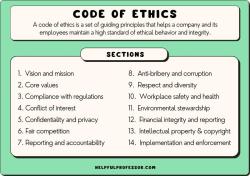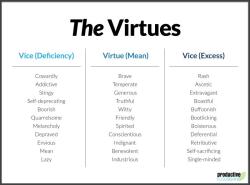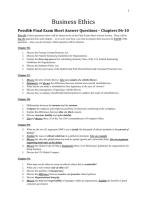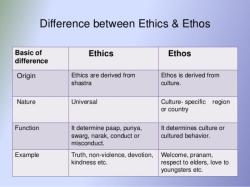What is the difference between normative ethics and descriptive ethics?
Normative ethics and descriptive ethics are two branches of philosophical ethics that approach the study of morality in different ways. Here are the key differences between normative ethics and descriptive ethics:
Focus and Scope:
- Normative Ethics: This branch of ethics is concerned with prescribing how people ought to act and what actions are morally right or wrong. Normative ethics seeks to establish ethical principles, standards, and guidelines for determining the morality of human conduct.
- Descriptive Ethics: Descriptive ethics, on the other hand, is concerned with describing and analyzing existing moral beliefs, practices, and behaviors within a particular society or culture. It aims to provide a factual account of how people perceive and approach moral issues.
Prescriptive vs. Descriptive:
- Normative Ethics: Normative ethics prescribes what actions are morally permissible, impermissible, or obligatory. It deals with questions of how individuals and societies should behave from a moral standpoint. Examples include deontology, consequentialism, and virtue ethics.
- Descriptive Ethics: Descriptive ethics, in contrast, does not prescribe how people should behave. Instead, it describes the moral values and beliefs that are prevalent in a given society or culture. It is more concerned with "what is" rather than "what ought to be."
Evaluation vs. Observation:
- Normative Ethics: This branch involves the evaluation of moral actions and principles. It assesses whether certain actions are morally right or wrong based on established ethical theories and frameworks.
- Descriptive Ethics: Descriptive ethics involves observation and analysis of the moral practices and beliefs that exist in a society. It seeks to understand and describe the variety of ethical perspectives without necessarily passing judgment on their validity.
Philosophical vs. Social Science Approach:
- Normative Ethics: Normative ethics is part of philosophical inquiry and often involves reasoned arguments and ethical theories developed by philosophers.
- Descriptive Ethics: Descriptive ethics is often studied within the social sciences, including sociology and anthropology. It employs empirical methods to investigate and document the moral values and practices of individuals and communities.
In summary, while normative ethics deals with the formulation of moral principles and guidelines, descriptive ethics focuses on describing and analyzing the existing moral landscape within a society. They serve different purposes in the study of ethics, with normative ethics addressing the question of how one should act morally, and descriptive ethics examining how people actually do behave in moral situations.
How do normative ethics and descriptive ethics differ in their approach to moral principles?
The key difference between normative ethics and descriptive ethics lies in their focus when approaching moral principles:
Normative ethics:
- Prescriptive: Focuses on determining what ought to be the case in terms of morality.
- Evaluative: Aims to establish principles and guidelines for how people should behave, judging actions as right or wrong.
- Theoretical: Develops frameworks and arguments to justify moral claims, often drawing on reason, intuition, or emotions.
- Examples: Utilitarianism, Deontology, Virtue Ethics, Feminist Ethics, Environmental Ethics.
Descriptive ethics:
- Empirical: Focuses on understanding what is the case in terms of moral beliefs and practices.
- Observational: Investigates how people actually think and behave regarding morality, including variations across cultures and societies.
- Neutral: Aims to describe and explain moral phenomena without endorsing any particular set of principles.
- Examples: Cross-cultural studies of moral judgment, research on moral development, analysis of ethical codes of conduct.
Here's a table summarizing the key differences:
| Feature | Normative Ethics | Descriptive Ethics |
|---|---|---|
| Focus | What ought to be | What is |
| Approach | Prescriptive, evaluative | Empirical, observational |
| Aim | Establish moral principles and guidelines | Describe and explain moral beliefs and practices |
| Attitude | Neutral | Neutral |
So, in a nutshell, normative ethics asks "What should we do?" while descriptive ethics asks "What do we actually do?" Both approaches are valuable, as normative ethics gives us frameworks for moral decision-making while descriptive ethics informs us about the realities of people's moral beliefs and behaviors.
I hope this clarifies the distinction between these two branches of ethics! Feel free to ask if you have any further questions.
